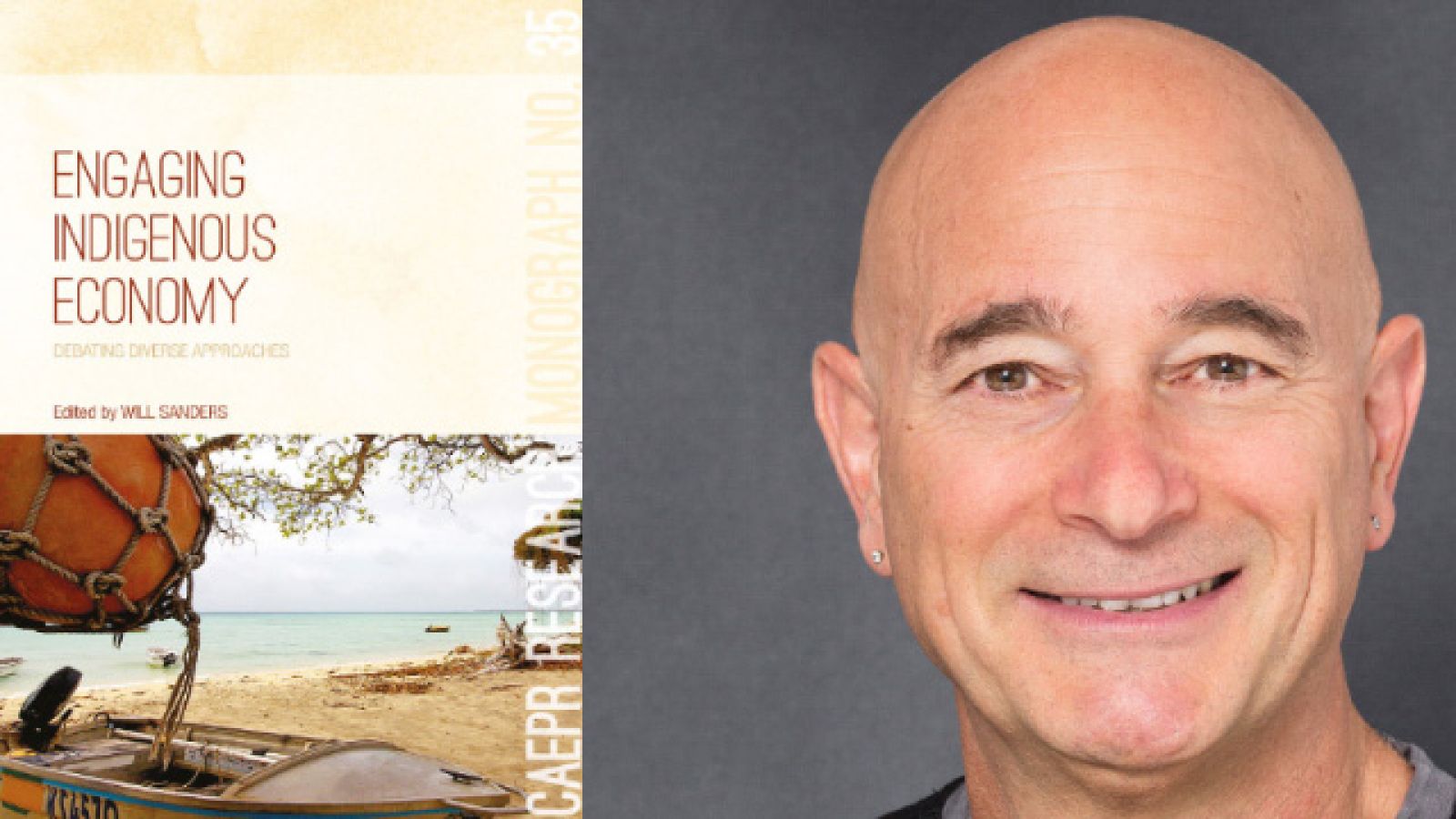New book traces nearly 40 years of research about Indigenous economic development

Engaging Indigenous Economy is a useful guide to the many topics debated in Indigenous affairs since the 1970s.
A new book from The Australian National University (ANU) maps almost 40 years of researching economic engagement in Indigenous communities by one of the country’s foremost economic anthropologists.
Engaging Indigenous Economy: Debating diverse approaches was published to mark Jon Altman’s 60th birthday in 2014 and retirement as Foundation Director of the university’s Centre for Aboriginal Economic Policy Research (CAEPR).
Now at Deakin University, Altman (pictured above) remains an Emeritus Professor at CAEPR and the School of Regulation and Global Governance (RegNet) at the ANU College of Asia and the Pacific.
The essays, by many of Altman’s former colleagues and younger scholars, explore his “hybrid economy” which can be imagined as a Venn diagram where market, state and customary sectors meet.
“Jon’s hybrid economy approach suggests that Indigenous people are competently exploring their comparative advantage drawn from the customary sector, while also exploring the opportunities and constraints they face in the market and state sectors,” Dr Will Sanders, the book’s editor and Altman’s former colleague, writes in the introduction.
“These exploratory choices both reflect and lead to differences, among Indigenous Australians and between Indigenous and settler Australians. Differences in socioeconomic status cannot simply be reduced to ideas of disadvantage and structural lack of opportunity.
“These are contentious ideas, but ones worth thinking about hard and taking seriously.”
The 22 essays explore those ideas in detail, covering topics such as environmentalism, Indigenous-owned arts centres, land use and land titling, native title, and income management.
Katherine Curchin’s essay asks whether the “hybrid economy” can provide answers to problems posed by the market economy through practices such as environmental management services on traditional lands.
“Work practices depend upon cooperation rather than competition with other workers within the workplace,” she writes.
“Work groups are likely to be comprised of people whose kin-relationships make them comfortable working together. In sum, these activities enable people to earn income—including cash income derived from market exchange—while resisting the full commoditisation of their labour, their cultural inheritance or the local environment.”
One of Altman’s PhD students, Benedict Scambary, reflects on Altman’s supervision, saying his research influence reaches beyond policy development “into the realm of empowerment” of Aboriginal people.
“His research is frank and fearless, and is of its nature political,” Scambary writes.
“The academy still occupies a position of privilege, and to Jon’s credit he has used that privilege to speak truth to power.”
Dr Will Sanders says the book is a useful guide to the many topics debated in Indigenous affairs since the 1970s.
“I think this provides a good background overview of Jon’s work, and will be a very good reference for people to look at,” Sanders says.
“It’s convenient for people who are new to the area and looking for a good summary of what he’s done over the past 30 years.
“Even people who are familiar with the area will find it useful, as it shows that Jon has been such a prolific producer.”
Engaging Indigenous Economy: Debating Diverse Approachesis published by ANU Press. $45 print edition or a free e-book.